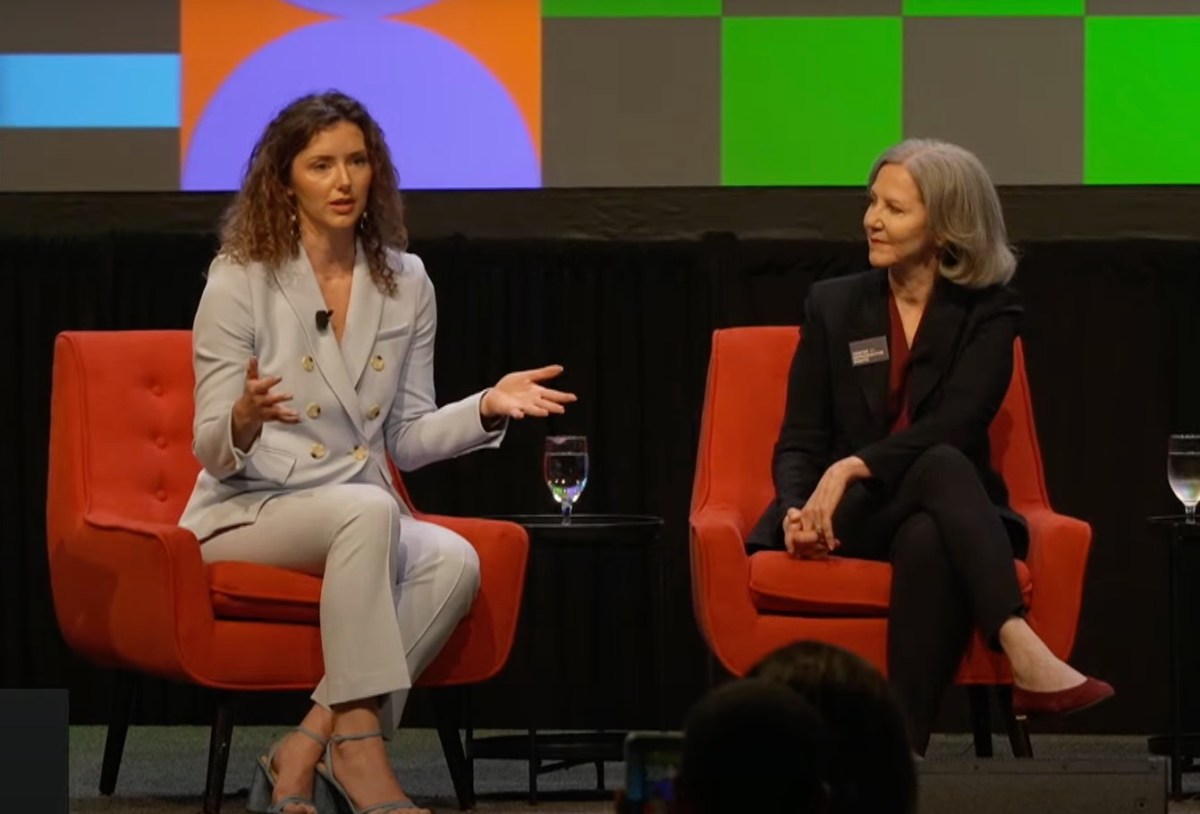Bumble lost a third of its Texas workforce after state passed restrictive ‘Heartbeat Act’ abortion bill
Bumble has lost a third of its Texas workforce in the months since the state passed the controversial abortion SB 8 (Senate Bill 8), also known as the Texas Heartbeat Act, over a year ago. This new data point was shared by Bumble’s Interim General Counsel, Elizabeth Monteleone, speaking on a panel this afternoon at the SXSW conference in Austin, Texas. The panel focused on the “healthcare crisis in Post-Roe America” and featured women who had both sued and spoken out about the need to have doctors, not politicians, involved in their healthcare decisions.
What’s more, Monteleone noted that Bumble is no longer requiring employees to join the business in its Austin location, even though the dating app maker is headquartered there.
“We are a remote-first company. We’ve supported employees who’ve chosen to move out of state,” Monteleone added.
“We — since SB 8 — have seen a reduction in our Texas workforce by about a third. Those employees are choosing to move elsewhere,” she told the audience at the event. “There are a variety of laws in Texas that I think many people find incompatible with living a healthy life and being their authentic self,” added Monteleone, suggesting that not all the departures may be tied directly to this specific piece of legislation, but possibly to several other Texas laws or proposed laws that don’t sit well with Bumble’s employees.
The dating app maker became the first business to join an amicus brief in support of a lawsuit against the Texas abortion law, Zurawski v. State of Texas, filed by the Center for Reproductive Rights. The suit claims that the law puts the lives of pregnant women in jeopardy because doctors are afraid to offer abortion care for fear of losing their licenses, facing hefty fines, or even prison terms. Women involved in the case are suing the state for being forced to carry out their pregnancies because of the state’s abortion law, despite risks to their health. Some women had to travel out of state to get health care, increasing their health risks. Others sued because they had to carry non-viable pregnancies to term. Several Texas doctors signed onto the lawsuit, as well, saying they could no longer properly practice medicine.
While the SXSW panel largely focused on the political aspects of this and other laws, including those that now seek to restrict access to IVF, as well as their personal and emotional toll on women, Bumble’s lawyer additionally pointed to the business impact these sorts of laws have.
“We know that abortion has an impact on individuals, but there’s a profound negative impact on society as a whole and particularly for businesses,” Monteleone said. “We were looking at the lens and what we are putting forth in the brief was talking about the increased cost to us to attract and retain talent in Texas, the increased costs for us to provide healthcare benefits to our employees…We found that because of our position, having been founded with women at the forefront, from the beginning, and having that voice and that legitimacy, to begin with, we could combine that with this very business-centric argument and help support the case,” she said.
Since Bumble’s signing, businesses from across Texas have also signed onto the amicus brief, including rival Match Group and SXSW, some saying they fear they will have similar challenges in attracting and retaining talent, as well.
“These are considerations of [prospective employees] when they’re thinking about if they’re going to accept a job, if they’re going to stay at a job. That consideration about location is a very real factor,” noted Monteleone.
Since the law’s passing, Bumble has introduced enhanced healthcare benefits that include covering the costs for individuals who “seek the full spectrum of reproductive rights,” she said, including abortion, IVF, surrogacy, egg freezing and also gender-affirming care. Other companies have offered similar benefits, at their own expense.
These issues are even more pressing for a company like Bumble which is currently struggling with growth and appealing to a younger audience that seems less interested in dating apps than their older counterparts. The dating app maker posted a weak Q4, with a $32 million net loss and $273.6 million in revenue. It also announced it was letting go of 350 employees after other organizational shifts that saw founder Whitney Wolfe Herd stepping down as CEO and a shake-up in the C-suite, which included the appointment of former Slack CEO Lidiane Jones as its new CEO.


